Rumor Roundup: What the 2025 iPhone 17 family may bring to the table
It's still a long ways away, but the rumor mill has been especially active about the 2025 iPhone 17. Here's what may be in store for the 2025 iPhone lineup.
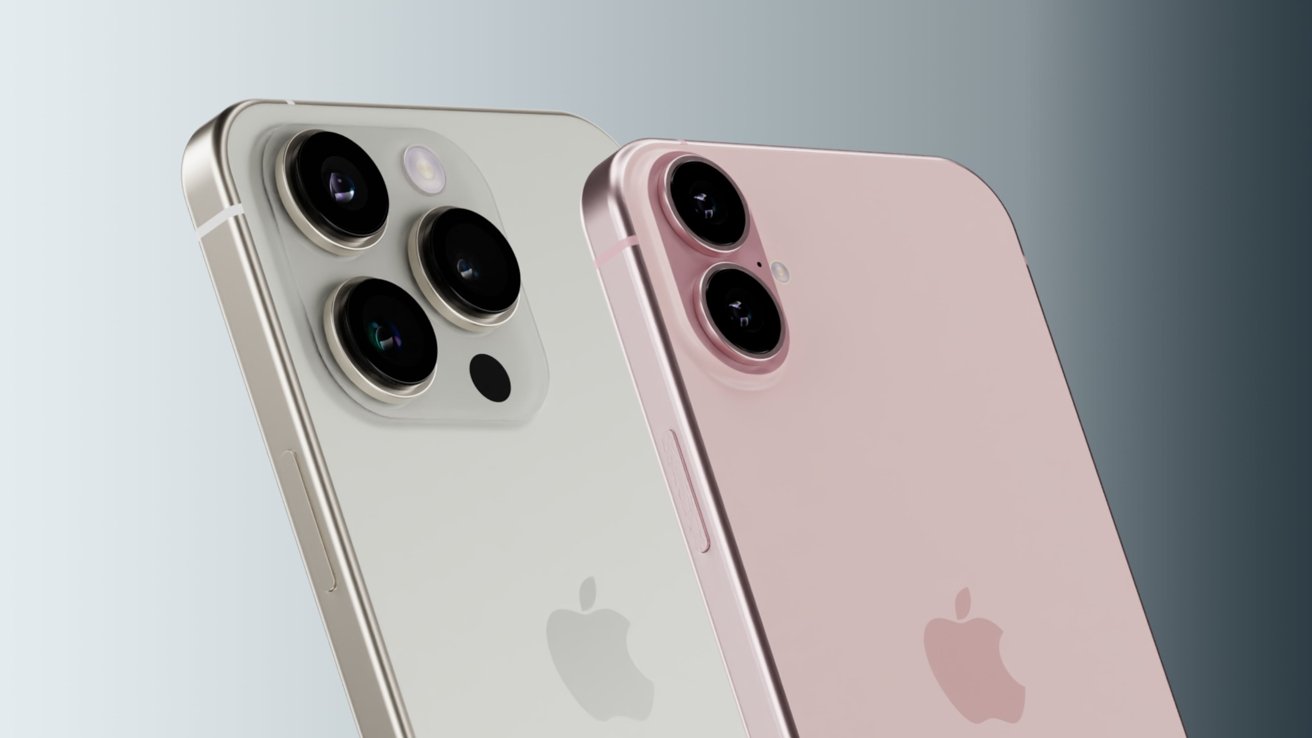
The standard and Pro models of iPhone 17 may have a familiar appearance
The iPhone 16 is barely a month away, but the rumor mill is has been chattering about the iPhone 17 for about a year now. Things are still up in the air, but the biggest rumor is that one underperforming model might get replaced by an entirely new design.
Here's what analysts and leakers believe the Cupertino tech giant will introduce in September 2025.
iPhone 17 and the Slim or Air
Apple has, for the last couple of years, offered four models in a generation of iPhones. There would be the standard and Plus models as well as the Pro and Pro Max editions, and, if rumors are to be believed, there could be big changes to the lineup.
For the main four, the main one would be the potential extermination of the Plus variant.
In July, a major voice in the rumor mill said that the iPhone 17 Plus will be killed in favor of a new thinner model, the iPhone Slim. According to Ming-Chi Kuo, the change is due to the Plus-size iPhones accounting for less than 10% of any given year's sales, making it the most opportune to remove.
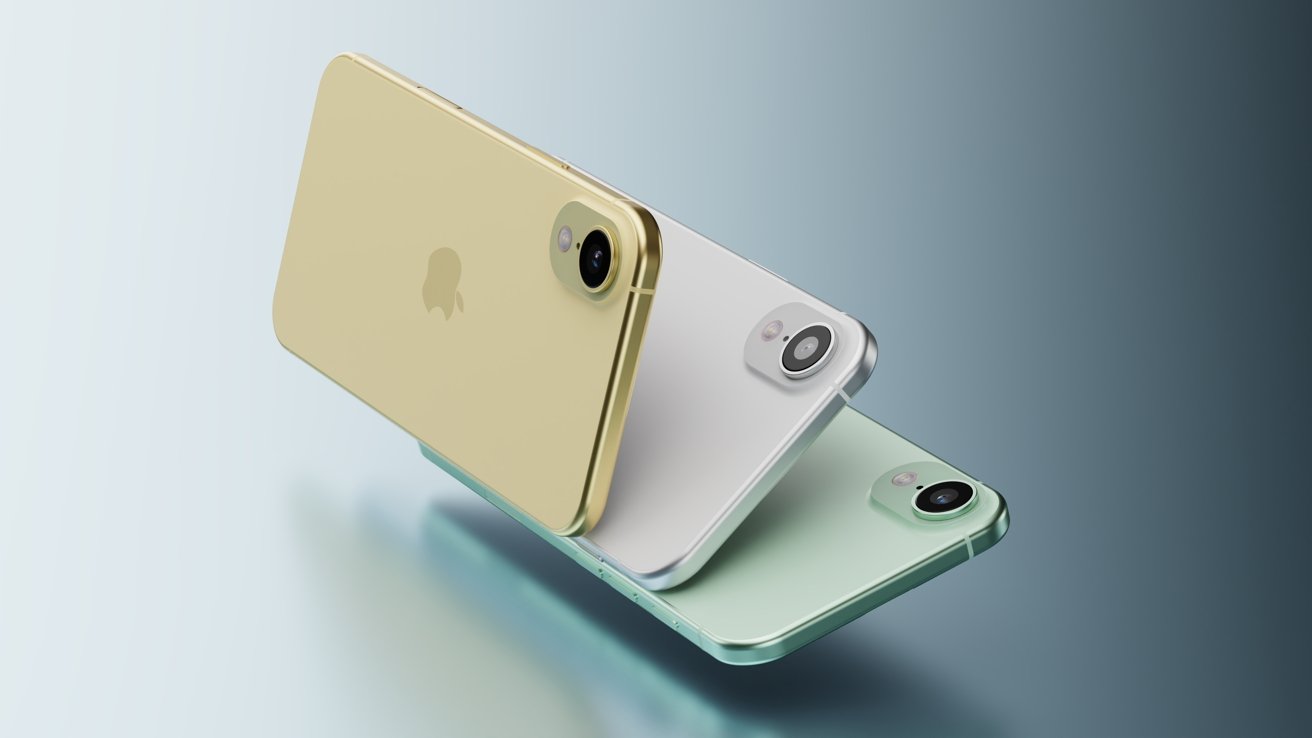
What the iPhone 17 Slim could look like
In August, a leaker offered speculation on the model, which they referred to as the iPhone Air.
This name does vaguely sound plausible, since it is used in the iPad and MacBook lineups. However, the leaker is the only one to have used the name, with all others appearing to go with the Slim name instead.
Previous rumors have also discussed the possibility of it being a very thin model, though speculation doesn't advise exactly how thin it will be. For reference, the current thinnest iPhone is the iPhone SE at 0.29 inches, while the thinnest iPad is the M4 iPad Pro at 0.20 inches.
While it seems the rumor mill agrees that the iPhone Slim will be a standard model, it may still gain one Pro-like feature. To help keep the Slim strong and resist bending, it may gain a "titanium-aluminum alloy frame" for strength.
iPhone 17's A19 chip
The core of the iPhone experience, the Apple-designed chip is upgraded each year to bring new features to users. With Apple now using a "Pro" variant, it means there is a decidedly big gap in function and performance between the standard and Pro models.
For the iPhone 17 generation, this would be the A19 and A19 Pro.
While performance or features are nonexistent in rumors, one area that does get talked about is TSMC's production.
Back in 2022, TSMC said it was planning mass production of 2-nanometer chip designs by 2025, coinciding with the A19. By December 2023, reports floated saying the iPhone 17 Pro would be the first to use it.
Changing to a smaller process offers multiple benefits, including a physically smaller chip to save space inside the smartphone. Power efficiencies and improved thermal management are also typical die-shrink benefits.
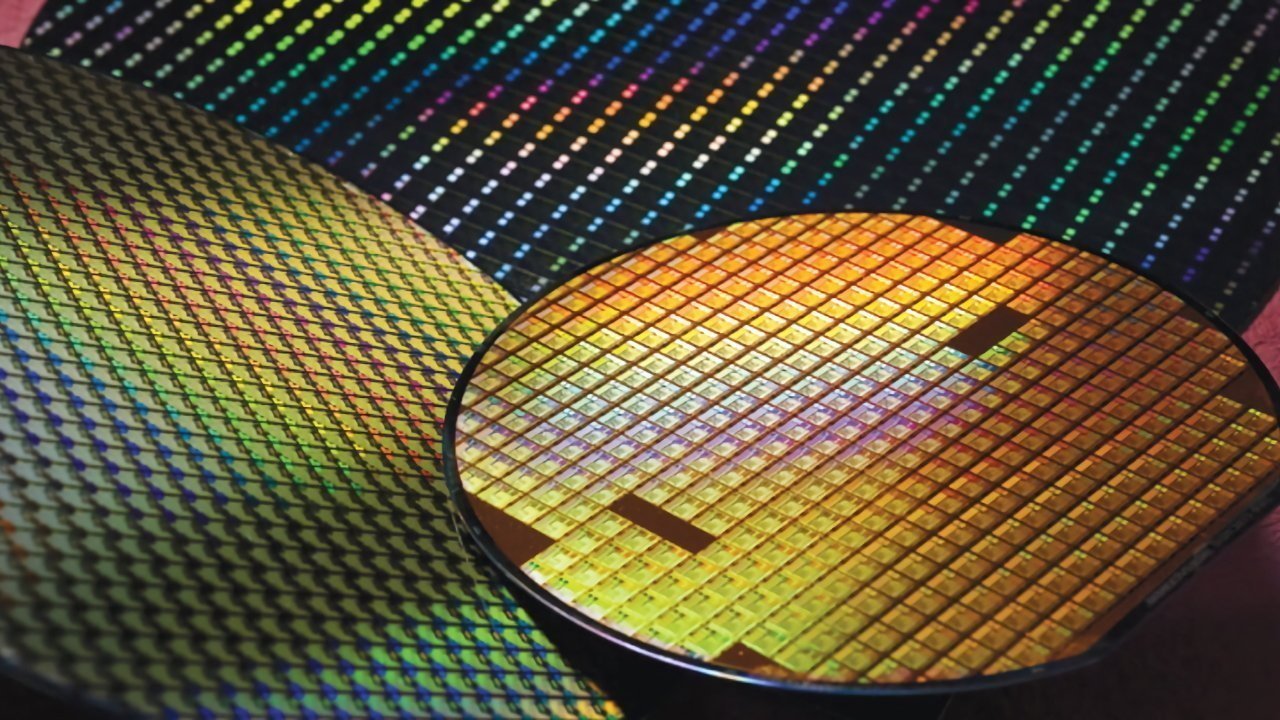
Processor wafers [TSMC]
However, while in July it was reported TSMC was starting trial production of 2-nanometer chips, another said the process would not be ready until the end of 2025.
This rumor was sourced from a Weibo leaker, so there's no guarantee that it's correct. Especially without any corroborating rumor claims from elsewhere about something so major.
Also anticipated to help with performance is memory, at least in the Pro models. In May, analyst Jeff Pu said Apple will increase the memory of Pro models.
The iPhone 15 lineup uses 8GB of memory, with the iPhone 16 anticipated to do the same. However, Pu says the Pro models will go up to 12GB.
Added memory should help improve multitasking as well as allow more powerful applications to run.
A memory increase is a quite logical thing to expect every few years from iPhone upgrades. Whether it's right to believe the figure will be 12GB, and that it will happen in the iPhone 17 generation, is another matter.
iPhone 17's thinner motherboard and Wi-Fi
Continuing the theme of internal components, the iPhone 17 could benefit from a new motherboard, that can use advanced technology to make it lighter.
According to Ming-Chi Kuo in October 2023, Apple plans to use Resin Coated Copper for the motherboard. A laminate material replacing a bonding sheet with a deposited resin, it uses laser ablation to carve the copper.
In theory it makes the thickness of the motherboard thinner, as well as making the drilling processes easier due to it being fiberglass-free. This will also cut cost and time for Apple's production lines, overall improving things for Apple's supply chain, but still unlikely to make a dent to iPhone pricing.
Meanwhile, though Apple has been working on its own in-house Wi-Fi chip, it probably won't make it into the iPhone 17. In December 2023, industry sources said that, despite heavy investment into its wireless connectivity projects, it won't be ready in time.
iPhone 17 Displays
The display of the iPhone has fallen into a regular pattern regarding size and variety, with two variants available in 6.1-inch and 6.7-inch sizes. That may grow in the iPhone 17 range.
In April, Ross Young of DSCC said that the iPhone 17 Plus will have a display that's smaller than the iPhone 15 Plus. However, Young didn't go into detail.
In Kuo's report about the Plus being replaced by the Slim, he too said the model would be larger than the standard model, smaller than the Plus. He also said it would measure 6.6 inches, and have a resolution of 2,740 by 1,260.
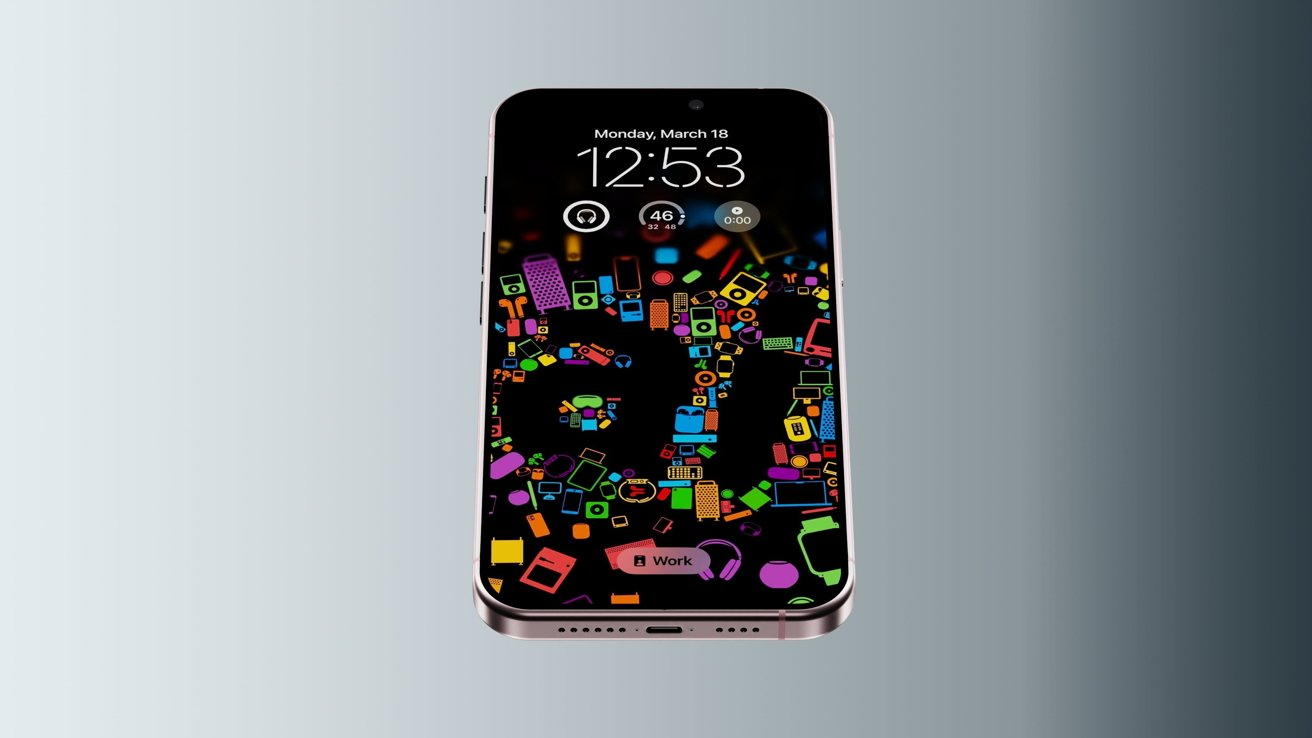
Apple may have some display changes planned for the iPhone 17.
Along with the size variations, rumors have also claimed that the displays will be anti-reflective and even more scratch-resistant. One March leaker said that Corning is working on even harder glass that could beat the Ceramic Shield displays.
However, accomplishing this may also cause finger oil to more readily appear on the display.
In April, another DSCC report claimed that the always-on display technology of the Pro models will make its way to the non-Pro, making all models offer the capability to consumers.
Slightly less believable is the assertion from a Weibo leaker in July that the ProMotion technology in the Pro models will also filter down to the non-Pro versions. This seems unlikely, given that ProMotion is one of the headline reasons Apple gives for consumers to buy a Pro model of iPhone.
iPhone 17 cameras
Keen photographers may see a few big benefits to their 2025 iPhone upgrade.
For a start, there are reports from July that Apple will enable adjustable apertures to the cameras on at least one iPhone 17 model. Given Apple's inclusion of the tetraprism lens in the iPhone 15 Pro Max, it will probably end up being the most expensive model.
Adjusting the aperture allows photographers to play with bokeh, the background blurriness you find in portraits. It may also allow for focus to be pulled in-camera for video instead of performing it computationally afterwards.
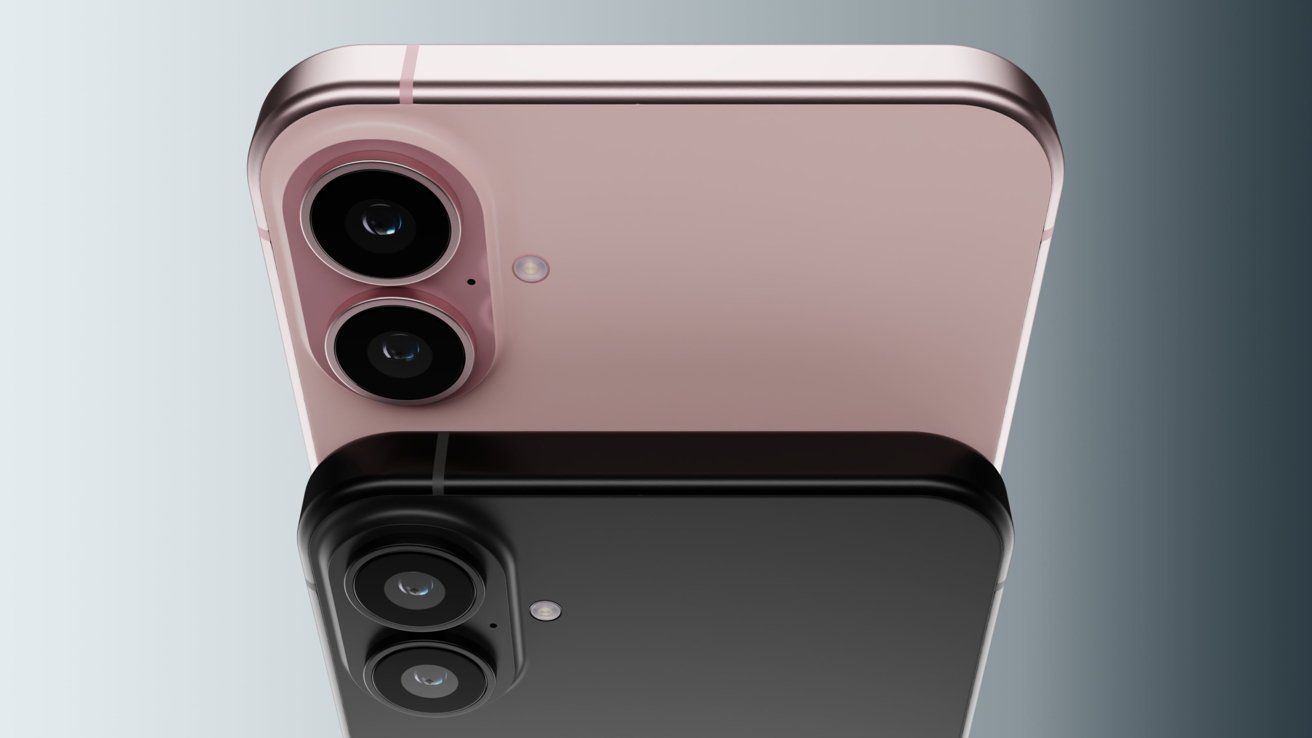
Renders of cameras on an iPhone
As for the front camera, multiple reports have asserted that Apple will use a 24-megapixel sensor in the TrueDepth camera array. This would double the 12-megapixel version used in the iPhone 15.
One report from August even claims Apple will move from a five-element plastic lens to a six-element version as part of the resolution switch.
Not all models may see improvements to the camera. Indeed, Kuo has proposed that the iPhone Slim variant could have just one camera, not multiple sensors.
This does make sense, since the model's thin body will make it harder to incorporate internal components, and something's got to give.
Read on AppleInsider

Comments
How do you improve on a diamond?… Incrementally.